


| Programme (taught in English) | 4-year full-time or 6-year part-time degree programme in AI with information and computing technology, and interdisciplinary applications with Catholic values taught by caring staff with diverse expertise and passion |
| Career | AI graduates are highly in demand globally in many different professions. Employment and postgraduate study opportunities are abundant in whatever city one may move to |
| High school graduates: Min DSE 332A2 | minimum 332A2 (English, Chinese, Math, Citizenship and Social Development) in the Hong Kong Diploma of Secondary Education Examination (HKDSEE) more |
| Professionals | IT professionals (already had degree) to study AI or apply for Year 3 entry more |
| With AD/HD: Year 3 entry | Associate Degree / Higher Diploma in related programme (e.g., in Computer Science, Math) more |
| With AD/HD: Year 2 entry | Associate Degree / Higher Diploma in unrelated field.more |
| Local student finance | Apply for admission to the SSSDP programme via JUPAS (Code: JSSA04) with subsidy of HK$46,780 to each eligible student in 2025/26 academic year. more |
| International student | Non-Chinese speaking international student may have Chinese courses substituted by other courses.more, hostels |
| Exchange student program | Optional |
| Internship | Optional |



Extraordinarily promising opportunities with new technologies such as machine learning, multimedia, virtual reality, Augmented Reality and cloud solutions and others, which continues to reshape AI space and enhance digital entertainment technologies (DET) beyond the current practices. AI and DET now play leading roles in the academia, industry, commerce, healthcare, education, management, government, smart city.
Benefits to pursue AI degree programme:
Our AI Programme is taught by caring staff with diverse expertise and passion to nurture high-tech professionals to serve the society with dignity of the individual, morality, and family values.
Staff:

The gifts of human intelligence have enabled many innovations and tools in AI, IT, and design that continues to improve and affect human lives tremendously. Yet these powerful tools may also be misused such as in addiction, in pornography, in the culture of death, and in fierce competitions to prosper at the expense of defeating others. Authentic Catholic teaching encourages to live out Christian faith of love, care and helping each other in the use of high-tech in one's profession in life in serving other people and the common good of the society.

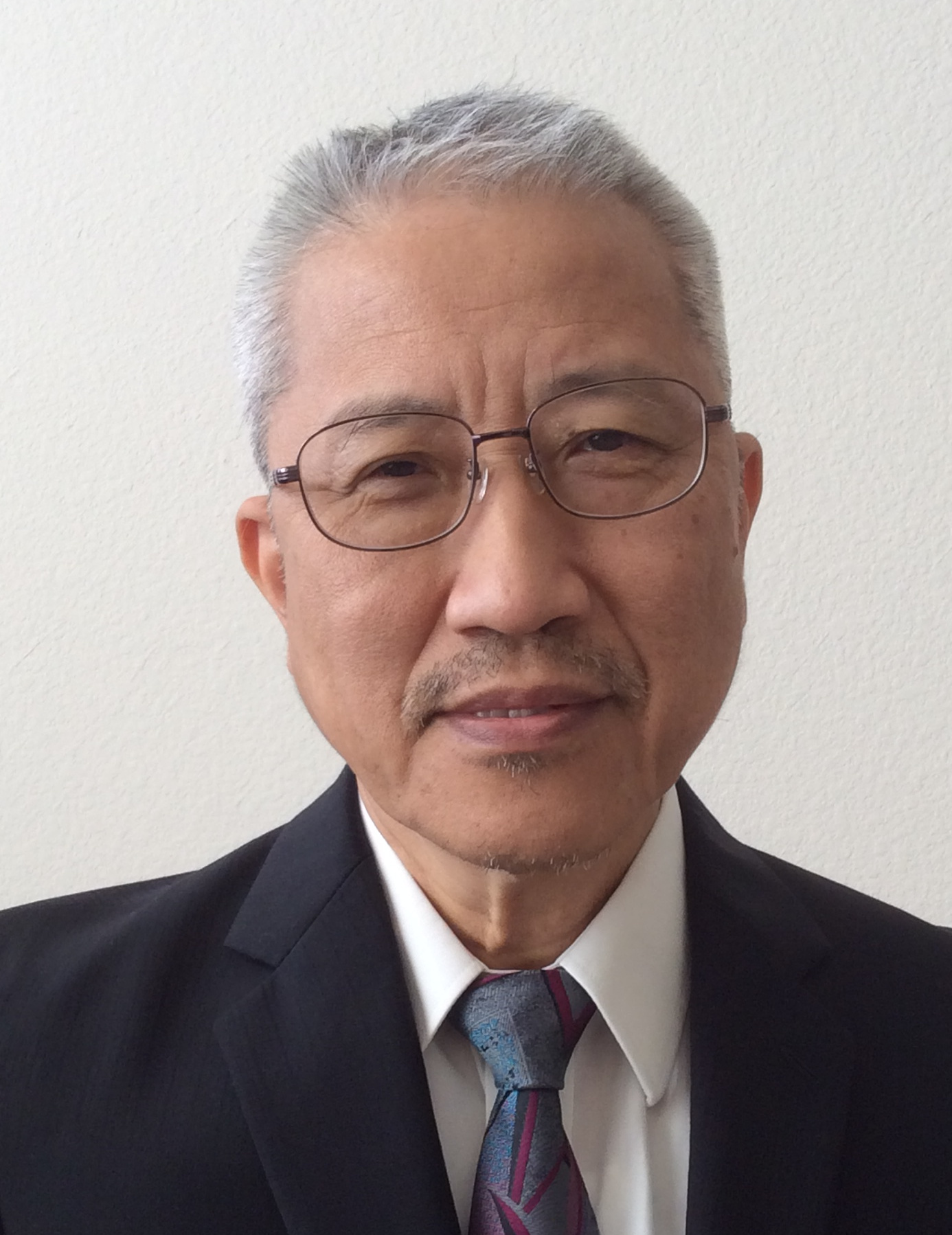
Professor H. Anthony CHAN, IEEE Fellow
Both BSc (Honors) in Artificial Intelligence and BSc (Honors) in Digital Entertainment Technology are in fast growth areas with many jobs and career options. Students will be equipped with fundamentals in computing and information science, and will learn AI or design from basic concepts, technologies, and applications in many fields. The expertise of our staff spans diverse and important areas including machine learning, deep learning, digital entertainment, multimedia, data science, design, Internet, communication network, standards, and ICT industry. Being active in research in these areas, our staff pay attention to ease of understanding and care for students in teaching.
Computing and information technologies are the enables to become a professional to innovate, create and design new and more useful products and services to improve daily life. New technologies in artificial intelligence, multimedia, virtual reality, and cloud have arisen, and newer technologies will continue to emerge. It is interesting to acquire and appreciate such new knowledge with opportunities to innovate as such a professional in demand globally.
I have enjoyed such an exciting career myself, having worked in both industry and academia overseas and having changed area of expertise multiple times as needs in industry changes. I intend to nurture students with understanding of the industry and with capability to take up new challenges to contribute to the society professionally and ethically.
My motto: I do not possess anything; all I have is only borrowed from God so that I may serve others.

The program objectives are:

(a) As more and more companies are investing in AI technology during this global race in AI efforts and adoption, the current global shortage of AI talents is increasing. This programme takes a newer approach:
(b) The programme is delivered by staff experienced both in the industry and academia.
(c) The programme is supported with a ‘distributed AI laboratory’ for interdisciplinary research and education, which is being established with IDS funding under RGC.
(d) This laboratory is accessible by all schools of SFU, to encourage horizontal developments of AI research and education across such areas as health sciences, business and hospitality management, social services, creative industries and humanities where the University has expertise in place.

Upon successful completion of the Program, students should be able to:

The current lack of AI expertise is accounting for the soar in AI wages. In China, while experienced (3-5 years) AI leaders salaries are typically US$150,000 per year , starting positions for AI graduates ranges almost US$50,000-100,000 per year.
The shortage of AI workforce results from many companies adopting AI technology. On the other hand, comprehensive AI education had not yet begun at the bachelor level until 2018. Lacking bachelor scale formal AI education, some competent individuals have been learning on their own to acquire AI experience in AI project at work or with (PhD) thesis research. Companies in China has to offer well over US$100,000 per year to attract these professionals.
The jobsDB job search website is showing hundreds of AI/ML jobs per month.
Example jobs include:



All the 25 places of the BScAI(Hons) Program are subsidized by the government under the SSSDP. To seek admission to the Program, applicants should apply via JUPAS(JUPAS Code: JSSA04).
Should there be unfilled intake places, local non-JUPAS applicants will be admitted via direct admission of the subsidized places in BSc(honour)AI.
If you wish to apply for the remaining subsidized places in advance, please submit your application via our Online Application System and choose (for Local Non-JUPAS Applicants ONLY): [SSSDP Unfilled Places] Bachelor of Science (Honours) in Artificial Intelligence (Year 1) – 1BSAI1. Please note that only when there are any remaining subsidized places, non-JUPAS applicants will be considered for direct admission for the program. The final decision is subject to the discretion of the University.
Applicants who seek admission to Year 2/ Year 3 entry of this program should apply directly to the University via our Online Application System for the self-financing places (course code: 1BSAI2, 1BSAI3).
Shortlisted local applicants will be invited to attend an admission interview. Applicants are requested to bring the following when attending the interview:
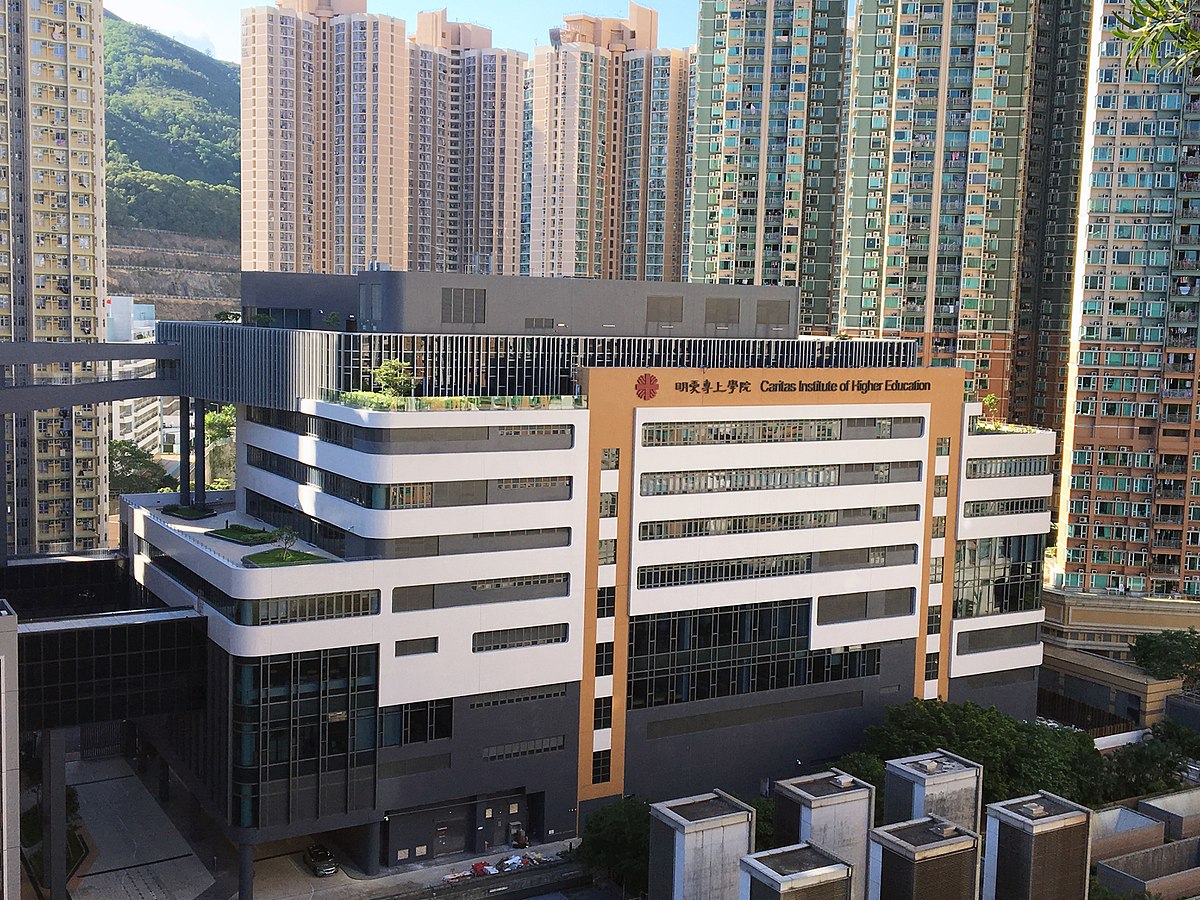
The annual tuition fee for the 2025/26 intake of the 4-year BScAI programme is HK$85,230 per year.
The tuition fee in 2025/26, after the deduction of the $46,780 subsidy under the SSSDP which is applicable for full-time local students only, is $38,450 per year.
The annual tuition fee for the 2025/26 intake of the 6-year part-time BScDET programme is HK$59,610 per year.

International students may apply: All courses in BScAI are taught in English, where Chinese language courses may be replaced by other courses for non-English speaking students.
The equivalent qualification to meet the admission requirements for local students is generally the successful completion of high school education in a 12-grade school system. It will include basic STEM courses and sufficient preparation in English proficiency to enable study in this degree program with lectures taught in English. Performance based on school transcript will be evaluated individually. Non-English speaking international students may be exempted from Chinese language study.
Please check the admission requirements here and apply via our Online Application System.

The annual non-local student tuition fee for the 2025/26 intake of the 4-year BScAI (or BScDET) programme is HK$96,310. (Exchange rate: HK$7.78 = US$1)

Qualified international students may apply for International Student Scholarship to waive a majority of the tuition. The academic performance, financial needs and motivation to study in a Catholic Institution are all considered in awarding the scholarship.
School principals and teachers are welcome to nominate their students for the international student scholarship. Both nominations and recommendations will be given due consideration.
Clergy members and lay leaders may nominate among the faithful from their parish those students with sound Christian faith, who may be interested in studying new technology. Short explanation on what you know about the candidate will help in the selection process.
International students may apply directly. For details of scholarships for international students, please enquire the Public Affairs Office and a designated staff will contact you. You may (1) send E-mail to pao@sfu.edu.hk , (2) or call (+852) 3653 6789, (3) or click the following Enquiry formto fill in and submit.


Office Telephone: (852) 3702 4211
WhatsApp: (852) 5269 3846
Email: cis-info@sfu.edu.hk
WeChat ID: wxid_ohv675ayadso52
Office Telephone: (852) 3702 4388
Email: pao@sfu.edu.hk
2 Chui Ling Lane, Tseung Kwan O, N.T. (Exit B, Tiu Keng Leng MTR Station)

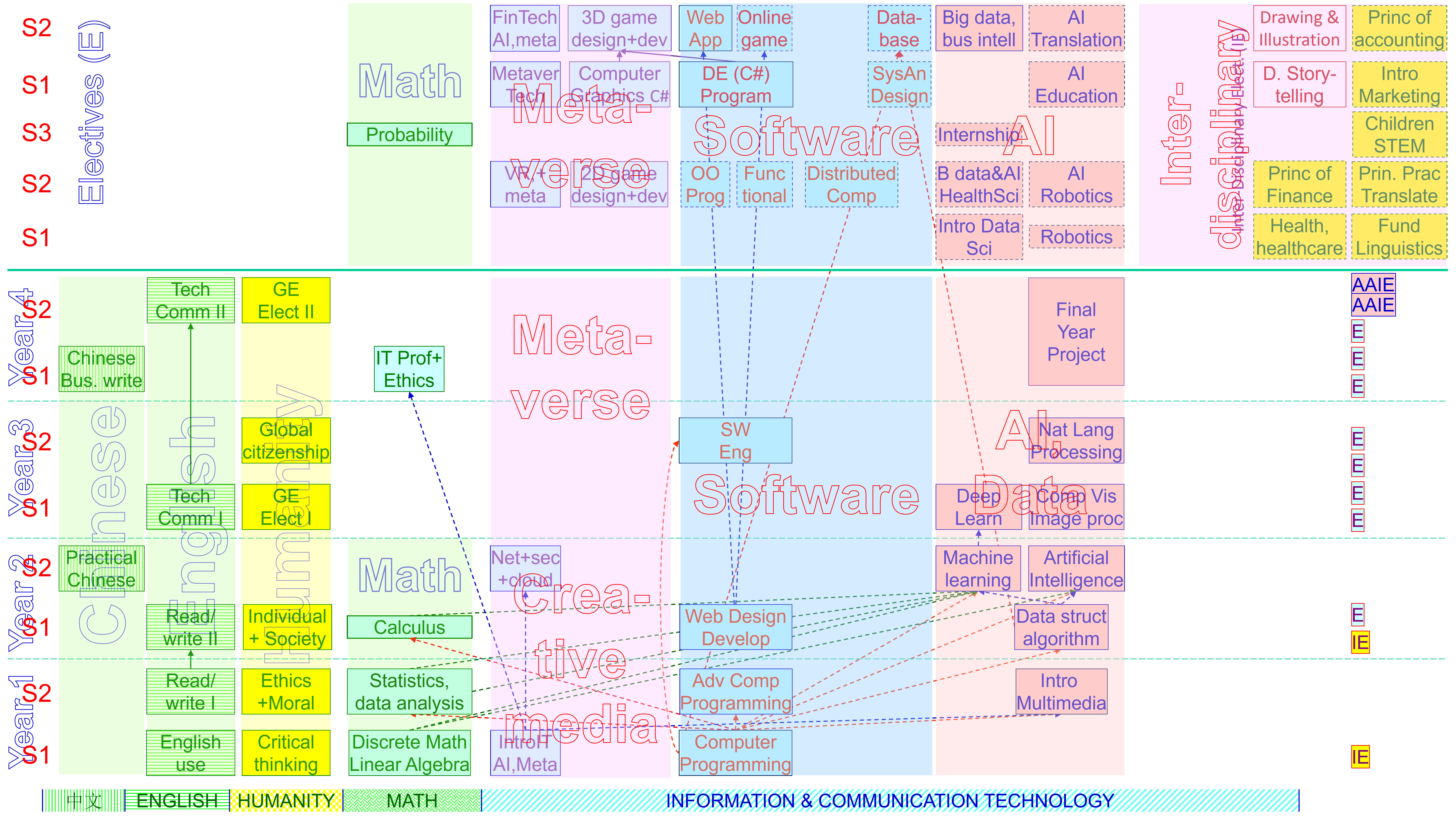

Applicants who have completed high school / 12th grade may check the admission requirements here and apply via our Online Application System.

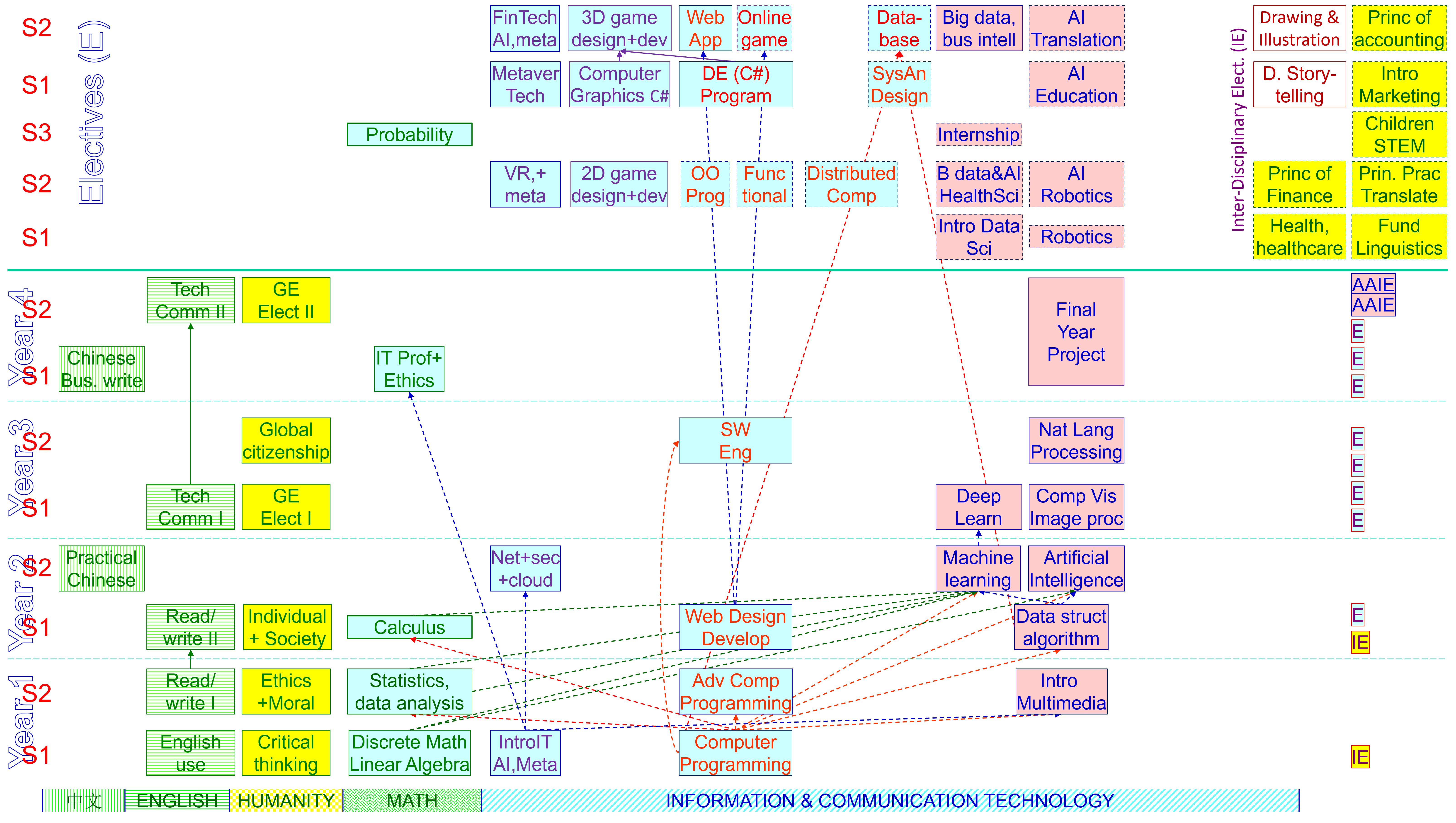


Facing the huge demand of AI expertise in the work environment, professionals with bachelor degree may apply for admission at Year 3 entry and attend courses on Saturday and/or evening.
Applicants with related bachelor degree programme may obtain credit transfer for nearly all Year 1 / Year 2 and many more Year 3 / Year 4 courses in recognition of their prior learning experience. Please check the admission requirements here and apply via our Online Application System.
One may also complete the AI courses without meeting BScAI requirements to receive certificate in AI instead.

The following is an example curriculum for student who already had bachelor degree in Computer Science
Level 4 and 5 courses in Math/IT/AI are exempted on a course by course basis depending on whether an equivalent course had already been successfully completed in the bachelor or associate degree. Curriculum for specific student therefore will depend on relevance of prior courses.
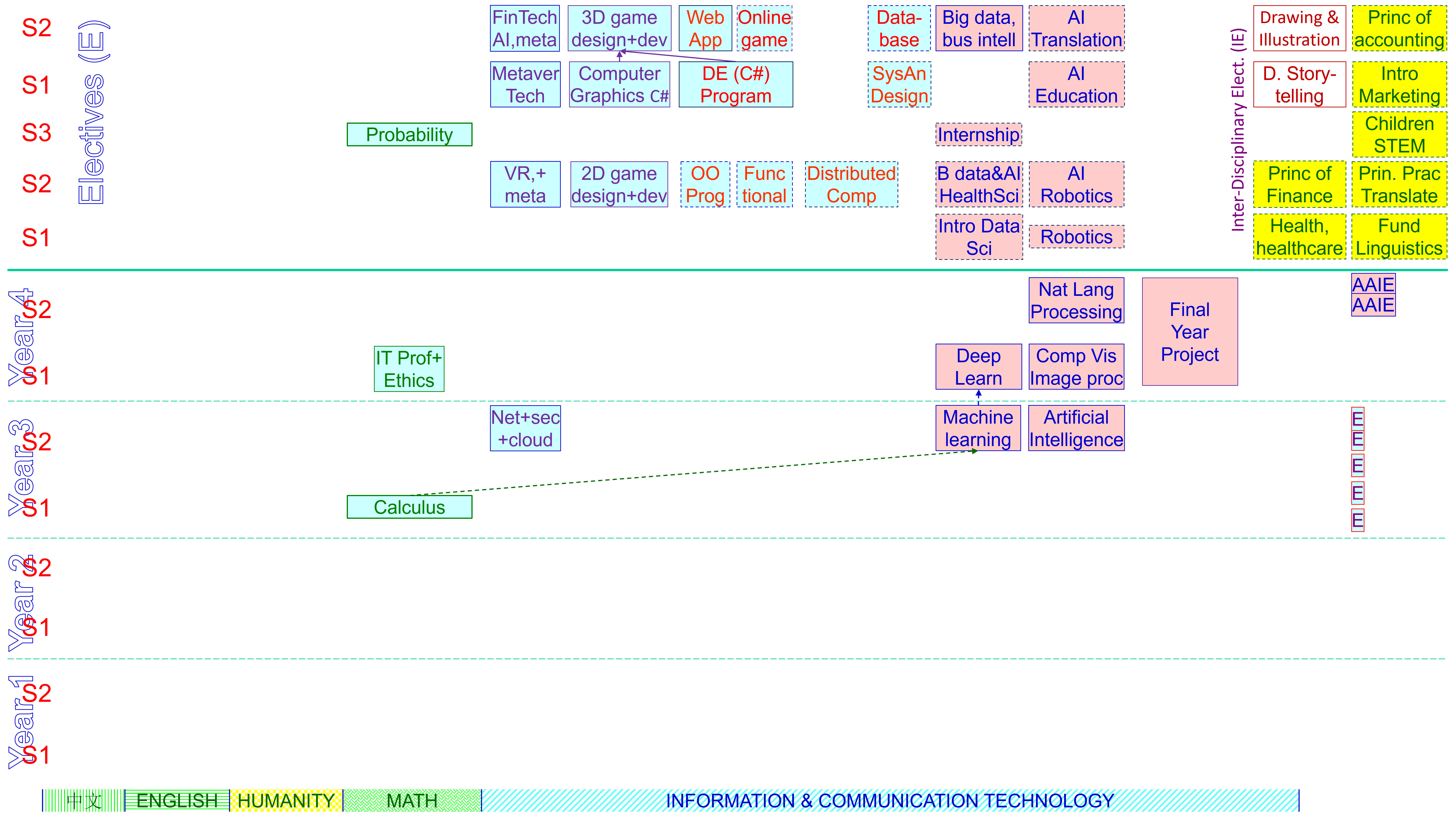


Applicants who have successfully completed a related (e.g., in Computer Science, Math) AD / HD programme may typically apply for admission at Year 3 entry of the BScAI Programme. Please check the admission requirements here and apply via our Online Application System.

The following is an example curriculum for student with 2-year associate degree or higher diploma in Computer Science
Level 4 courses in Math/IT/AI are exempted on a course by course basis depending on whether an equivalent course had already been successfully completed in the associate degree. Curriculum for specific student therefore will depend on relevance of prior courses.
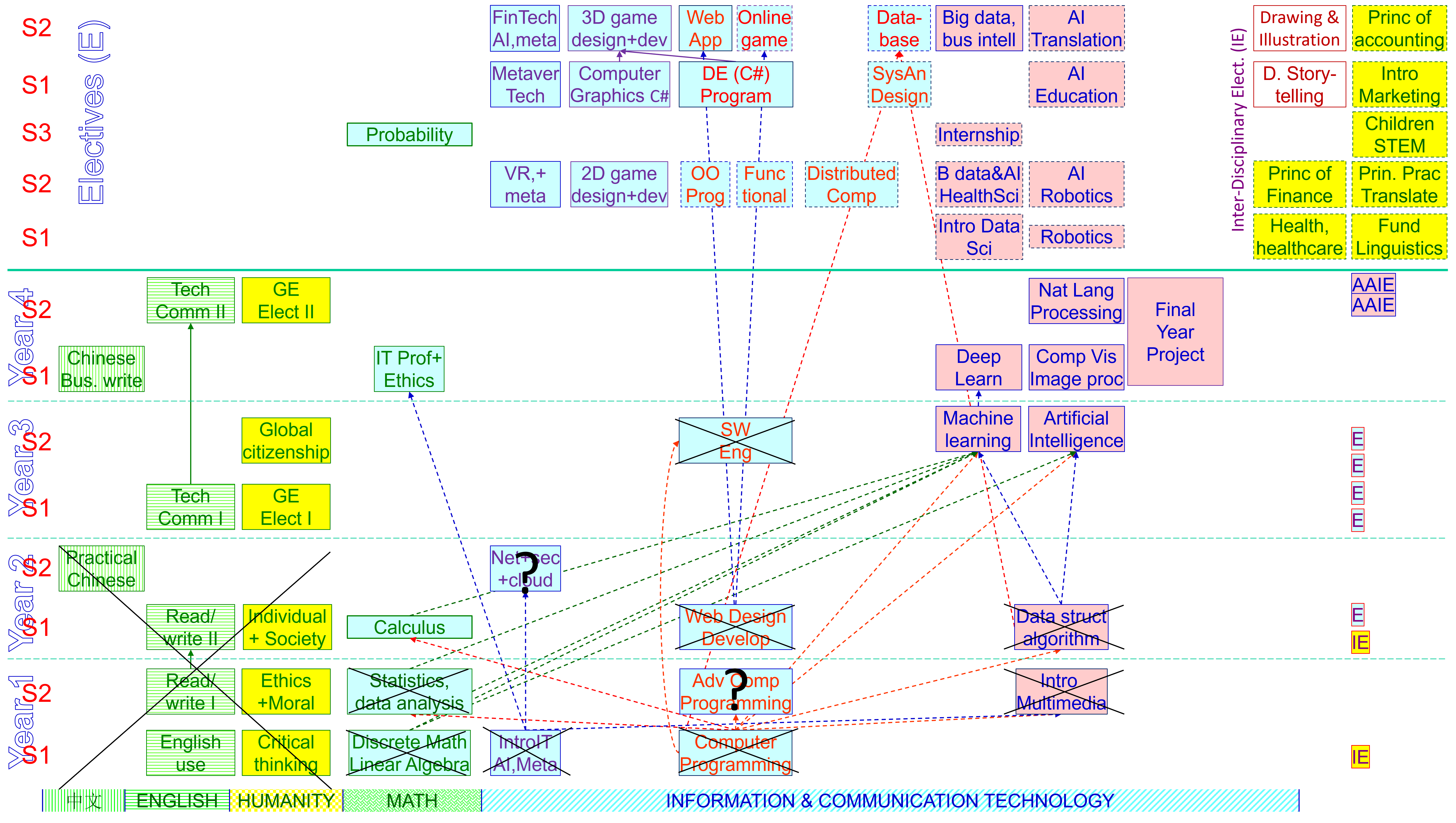


Applicants who have successfully completed an AD / HD programme (in any discipline) may typically apply for admission at Year 2 entry of the BScAI Programme. Please check the admission requirements here and apply via our Online Application System.

The following is an example curriculum for student with a 2-year associate degree or higher diploma in an unrelated discipline.
One may then make up for level 4 maths and computer science courses in Year 2.
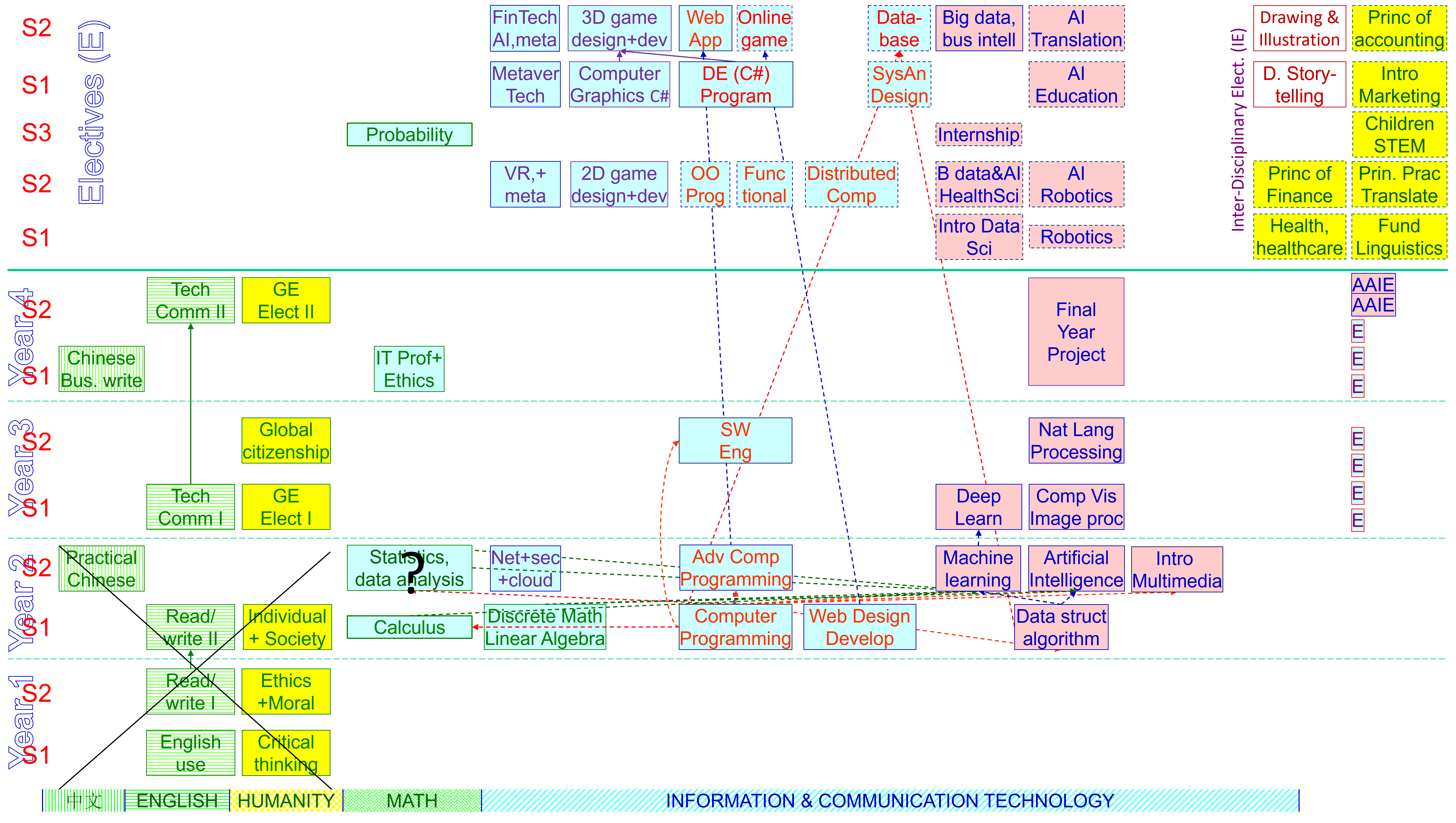


Students are highly encouraged to take the Internship course to gain industry experiences.
Industry parters are offering Internship to our students and are also hiring from our graduates.
Partial list of our industry partners are:



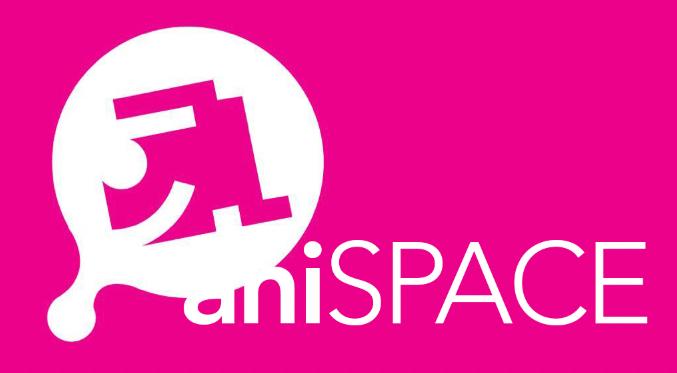
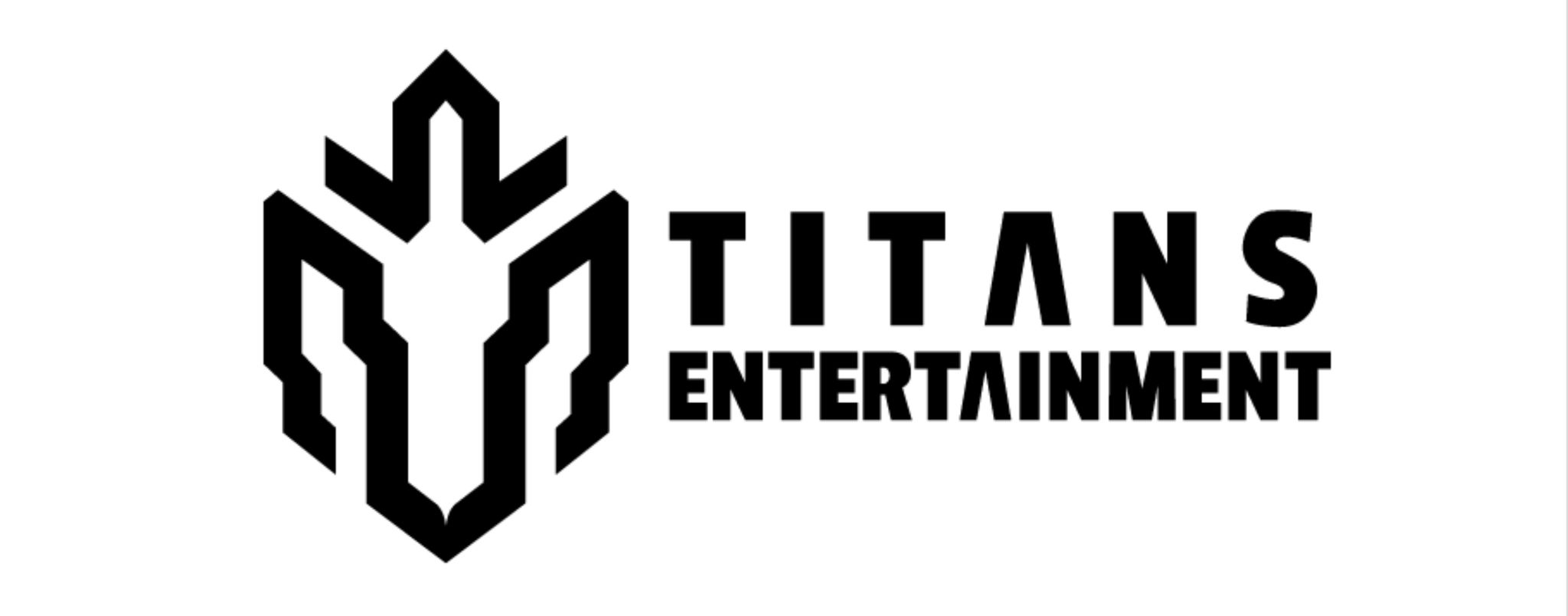
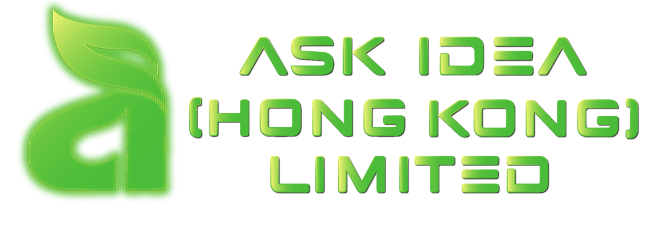
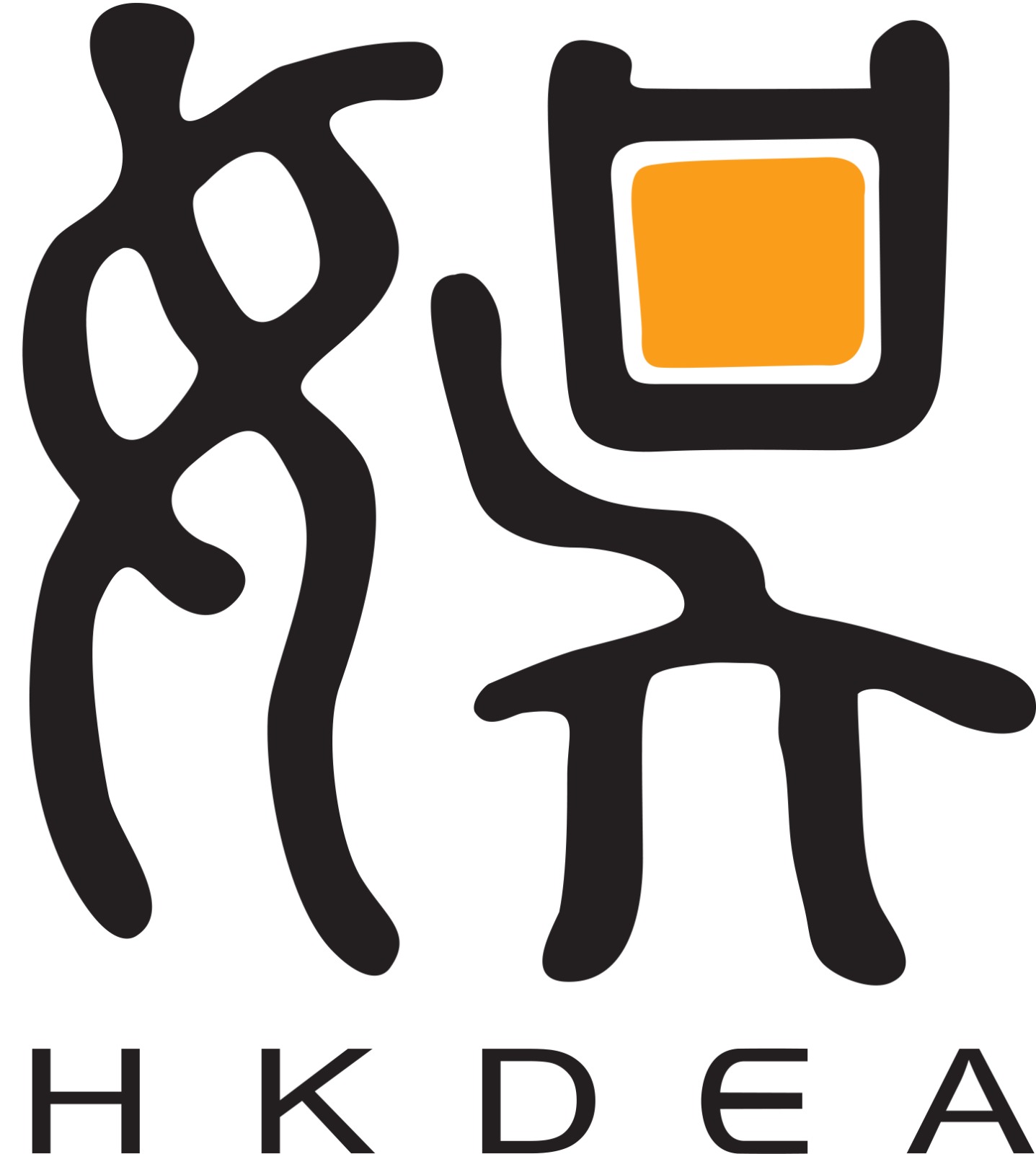



In 2018, Carnegie Mellon University offered the first B.S. in AI with comprehensive AI courses in USA.
In 2019, HKU and CUHK offered the first bachelor in AI programmes in Hong Kong, whereas HK Polyu offered a stream in financial technology and AI:
BEng in Artificial Intelligence - Systems & Technologies
BSc(Hons) in Financial Technology and Artificial Intelligence
They are also listed at: AI programmes listed under Office of the Government Chief Information Officer
In 2020, we are the first Catholic Institution to offer BScAI.
Prior to that, we had begun "Establishment of Distributed AI Laboratory for Interdisciplinary Research," and are the first privately funded higher education institute that has received UGC - IDS funding to establish AI research lab.
Some bachelor AI programmes are listed at: Global bachelor degrees in AI

What is the job prospect of BSAI students? Which industry can I work in?
Machine learning engineer/analyst, big data engineer, systems analyst, software architect, software engineer, front/back end engineer, computing graphic developer/engineer. Machine learning for finance, healthcare, translation, education, or engineering company/organizations. Good knowledge and skills in AI puts one at great advantage in seeking above jobs, in getting higher pay and faster promotion.
What is the market demand for AI specialists?
According to the local job search website in July 2021, there are as many as 1,069 AI-related vacancies in just one month.
If I do not meet the basic admission requirements, will I still be able to study this bachelor degree programme?
Students meeting HDAI-ICT admission requirements could study HDAI-ICT programmes which bridges smoothly to BScAI programme at Year-3 entry when they graduate from the HDAI-ICT.
Do I have a higher chance of admission in the BSAI programme if I have studied ICT? Does ICT have a higher weighting than other electives e.g. Economy?
In the selection process, the applicant's scores in two elective subjects in the Hong Kong Diploma of Secondary Education Examination will be considered as additional scores. Although prior study in ICT may help, other factors such as interview, motivation and interests of the applicant are also considered.
Will there be interview after the annoucement of JUPAS result?
Yes. If students are interested in our programme, welcome to give us a call or whatsapp to 52693846, so we can arrange special interview.
I have already complete HD/AD, BSc or BA, can I apply for BScAI?
One who has already complete HD/AD in related area (Computer science, IT, etc.) may apply for Year 3 entry. If the HD/AD is not in related area, one may apply for Year 2 entry.
What are the characteristics and features of the BSAI programme when few universities are offering this programme in the world?
As the first artificial intelligence (AI) degree course offered by a self-financing institution in Hong Kong, we have a Distributed AI Laboratory. The course design is from simple to deep, step-by-step, and qualified liberal arts/science students can apply.
Would it be difficult to understand the contents if I have never studied and contacted any related topics or knowledge?
No. When we design the programme, we do not require that the students have studied any related topics or knowledge.
What are the course contents of the BSAI programme? What skills can we learn?
The BSAI programme has covered both artificial intelligence and information science, including the popular courses like machine learning and deep learning. Using the AI skilled learned in this programme. Graduates could develop various AI applications in different areas.
Can I study other courses other than the courses of BSAI if I have interest in other industries?
AI is already applied in almost every other field. Students will choose 2 interdisciplinary subjects in the first two year. Then in the fourth year, they choose 2 application areas to apply AI to those areas such as finance, translation, healthcare, education, and engineering.
Would the school have any support e.g. related equipment and software for the BScAI students to complete their project?
The school is equiped with AI laboratory and Digital Entertainment laboratory. The laboratories are open to students to enable using them to complete homework and projects.
Does the school help the BASI students buy the expensive professional softwares for their personal use?
The school has established AI laboratory and installed the needed software. Students may use the lab facilities without having to buy their own.
Do BScAI students have internship opputurnities in technological or digital companies?
Yes, we encourage students to intern at Year 3 summer. Our school also has connections with various IT and AI companies, and will recommend students to intern at these companies.
Is there any scholarship programme for the BScAI students?
If the new students score 13 points in the best five subjects in the DSE, they can also receive an admission scholarship of $30,000. With the government's non-income subsidy of more than $30,000, they only need to pay around $10,000 each year in tuition.
What are the qualifications of the academic staff of the BScAI programme?
The teaching faculty is composed of both local and international experts in AI, ICT, and 5G, including some staff with rich industry experience and Fellows of IEEE
